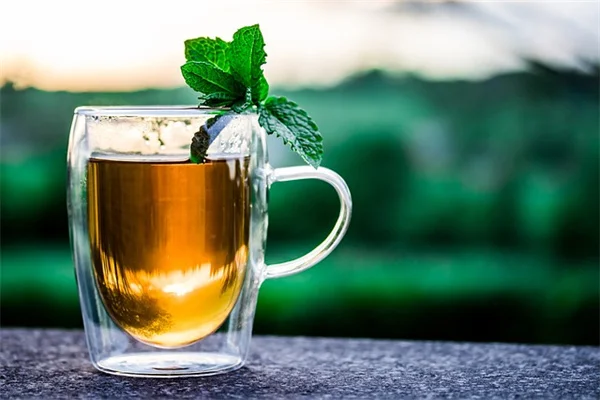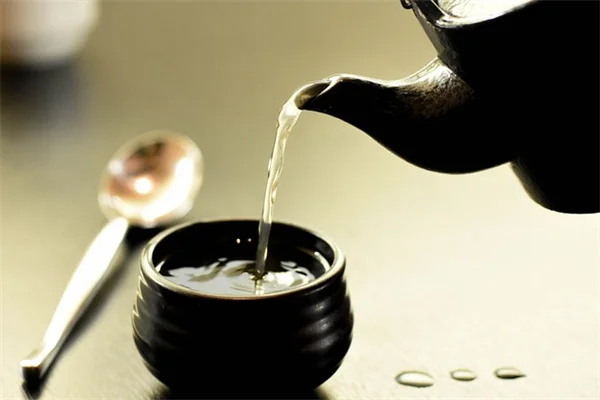Advertisement
Can cannabis really help reduce opioid use for chronic pain? The answer is yes - and the numbers prove it! New research shows over 50% of chronic pain patients using cannabis report decreasing their opioid medications. I've been following this trend closely, and the data from 35 U.S. states with medical cannabis programs is impossible to ignore.Here's what you need to know: A groundbreaking JAMA Network Open study found most patients using cannabis for pain management cut back on prescription drugs. Dr. Mark Bicket's team discovered 66% reduced opioid use, while 58% used fewer over-the-counter meds. That's huge when you consider America's opioid crisis!But before you swap your meds for marijuana, let me share some expert insights. While cannabis shows promise, doctors emphasize it works best as part of a complete pain management plan. The key? Starting low, going slow, and working with your physician - which we'll explore in detail below.
E.g. :Can Coffee and Tea Lower Diabetes Risk? New Study Reveals Caffeine's Benefits
- 1、Why More People Are Turning to Cannabis for Pain Relief
- 2、How Cannabis Stacks Up Against Other Pain Treatments
- 3、The Science Behind Cannabis and Pain Relief
- 4、Practical Advice for Cannabis Newbies
- 5、The Future of Cannabis Research
- 6、Exploring Alternative Pain Management Options
- 7、The Economic Impact of Cannabis for Pain Relief
- 8、Personal Stories That Change Perspectives
- 9、Navigating the Social Stigma
- 10、The Science of Personalized Medicine
- 11、FAQs
Why More People Are Turning to Cannabis for Pain Relief
The Opioid Connection
Did you know over 50% of chronic pain patients using cannabis report cutting back on opioids? That's right - medical marijuana might be helping America tackle the opioid crisis one patient at a time. Let me break down why this matters.
In states where medical cannabis is legal (that's 35 states plus D.C. as of 2022), doctors are noticing something interesting. Patients aren't just using cannabis alongside their medications - they're actually reducing their reliance on prescription painkillers. Dr. Mark Bicket from the University of Michigan found most chronic pain patients in his study reported using fewer opioids after starting cannabis treatment.
What the Numbers Show
Check out these eye-opening statistics from the JAMA Network Open study:
| Behavior | Percentage of Cannabis Users |
|---|---|
| Reduced opioid use | 66% |
| Reduced OTC medication use | 58% |
| Increased non-drug therapies | 42% |
Now here's something that might surprise you - less than 1% of patients reported increasing their medication use with cannabis. That's like finding only one person in your entire school who actually likes cafeteria food!
How Cannabis Stacks Up Against Other Pain Treatments
 Photos provided by pixabay
Photos provided by pixabay
The Therapy Comparison
Ever wonder why physical therapy doesn't work for everyone? The study found cannabis users had mixed results with traditional therapies:
Some patients decreased their use of physical therapy or meditation after starting cannabis. But get this - others actually increased their use of these treatments. It's like when you discover yoga helps your back pain, but you still need that occasional massage.
What Doctors Are Saying
Dr. Sherry Yafai in Santa Monica sees this play out daily in her practice. "In states with medical cannabis laws," she notes, "we're seeing fewer opioid prescriptions and even fewer overdoses." That's huge when you consider America's opioid crisis.
But here's the million-dollar question: Is cannabis actually reducing pain, or are people just feeling better because they expect to? Great question! Dr. Roger Chou from Oregon Health & Science University explains we need more research comparing cannabis users to non-users over time.
The Science Behind Cannabis and Pain Relief
THC vs CBD: What's the Difference?
Imagine walking into a candy store, but instead of chocolates, you've got different cannabis products. There's CBD from hemp (legal nationwide thanks to the 2018 Farm Bill) and good old-fashioned THC flower from dispensaries.
Dr. Yafai puts it perfectly: "Are we talking CBD gummies or grandma's secret brownie recipe?" The difference matters because:
- THC gives the "high" feeling
- CBD works without psychoactive effects
- Combinations might work best for pain
 Photos provided by pixabay
Photos provided by pixabay
The Therapy Comparison
Chou's review in the Annals of Internal Medicine found certain cannabis products can offer short-term pain relief. But - and this is a big but - they also increase risks like dizziness. It's like when your mom warned you about riding rollercoasters after eating cotton candy.
Here's another head-scratcher: Could the pain relief just be a placebo effect? Interesting thought! A November JAMA study suggested some benefits might come from people's expectations. But with so many patients reporting real improvements, doctors agree we need more research.
Practical Advice for Cannabis Newbies
Safety First: Doctor's Orders
Dr. Medhat Mikhael, a California pain specialist, gives it to us straight: "Cannabis works best as part of a team." Most of his patients use it with other treatments like anti-inflammatories. But he's got one golden rule:
Never mix cannabis with opioids until we have safety data. "We don't know how your body will handle both," he warns. It's like drinking coffee with energy drinks - might seem fine until you're vibrating through math class.
Yafai's Top 3 Tips
Thinking about trying cannabis for pain? Here's what the experts say:
- Know your state laws - You don't want to accidentally break the law like that time you didn't realize jaywalking was illegal
- Start low, go slow - Your friend's dose might send you to the moon
- Edibles require caution - That 100mg THC cookie isn't a snack, it's a spaceship ticket
The Future of Cannabis Research
 Photos provided by pixabay
Photos provided by pixabay
The Therapy Comparison
Bicket hits the nail on the head: "This highlights the need for more research." We still don't know:
- Which cannabis strains work best
- Optimal dosing for different pains
- Long-term effects
Chou agrees, saying current studies "underscore the importance of well-conducted research." It's like when your science teacher says your volcano project needs "more controlled experiments" before the baking soda explosion.
Your Next Steps
If you're considering cannabis for chronic pain, remember:
- Talk to your doctor first - they're like your pain relief coach
- Keep a symptom journal - notes help more than memory
- Be patient - finding the right treatment takes time
The bottom line? Cannabis shows real promise for pain management, but we've got more homework to do. As Mikhael says, "It's not a magic bullet, but for many patients, it's an important tool in the toolbox." And who couldn't use another tool when life keeps throwing us curveballs?
Exploring Alternative Pain Management Options
Why People Are Looking Beyond Traditional Medicine
You've probably noticed more folks talking about natural remedies these days. It's not just cannabis - people are exploring everything from acupuncture to turmeric supplements. The common thread? People want options that don't come with a laundry list of side effects.
Take my neighbor Sarah for example. After her third back surgery, she was taking so many pills she needed a spreadsheet to track them. Then she tried CBD oil on a friend's suggestion. Now she's down to just one prescription medication and says she feels more like herself again. Stories like hers are becoming increasingly common in doctors' offices across the country.
The Role of Lifestyle Changes
Here's something interesting - many cannabis users report making other healthy changes too. It's like when you start going to the gym and suddenly you're drinking green smoothies and actually enjoying them.
Studies show that people who incorporate cannabis into their pain management often:
- Sleep better (finally catching those Z's!)
- Experience less anxiety (goodbye, clenched jaw)
- Have more energy for exercise (walking the dog doesn't feel like a marathon anymore)
The Economic Impact of Cannabis for Pain Relief
Saving Money on Healthcare
Let's talk dollars and cents for a minute. Prescription pain medications aren't cheap, especially if you don't have great insurance. A month's supply of some name-brand opioids can cost more than your car payment!
Now compare that to medical cannabis. While prices vary by state, many patients report spending significantly less overall. Here's a quick breakdown:
| Expense | Traditional Treatment | Cannabis Treatment |
|---|---|---|
| Monthly medication cost | $300-$800 | $100-$300 |
| Doctor visits per year | 6-12 | 2-4 |
| Side effect treatments | Often needed | Rarely needed |
The Job Market Boom
Did you know the cannabis industry created over 77,000 new jobs last year alone? From growers to budtenders to lab technicians, this emerging field is providing opportunities in communities across America.
My cousin Jake lost his factory job during the pandemic and retrained as a cannabis cultivation specialist. Now he says he's never been happier at work - though he does get teased about being a professional "plant whisperer."
Personal Stories That Change Perspectives
From Skeptic to Believer
Remember how your grandma used to say cannabis was just for "hippies and stoners"? Well, guess what - she might be reconsidering. Senior citizens are actually the fastest-growing demographic of new cannabis users.
Take Mrs. Thompson from my yoga class. At 72, she was skeptical but desperate for relief from her arthritis pain. Now she's the one educating her bridge club about CBD topicals. "I wish I'd tried this years ago," she told me last week. "I can finally open jars without asking for help!"
Veterans Finding Relief
Here's something that really hits home. Many military veterans are turning to cannabis after struggling with both physical pain and PTSD from their service.
The VA still can't officially recommend cannabis due to federal laws, but privately many doctors acknowledge its benefits. One veteran I spoke with put it perfectly: "After 15 years of pills that made me feel like a zombie, cannabis lets me be present for my family again."
Changing Perceptions
Isn't it funny how things change? Remember when people whispered about "medical marijuana" patients? Now you've got soccer moms comparing CBD brands at PTA meetings.
The shift in public opinion has been dramatic. A recent Pew Research study found that 91% of Americans now support legal cannabis for medical use. That's higher than the percentage who believe in evolution!
Workplace Challenges
But let's be real - it's not all smooth sailing. Many patients still face discrimination at work, even in states where medical use is legal.
My friend Lisa nearly lost her teaching job after failing a drug test - even though she had a valid prescription. "The irony?" she says. "I was using it to manage migraines so I could actually focus on teaching." Stories like hers show we still have progress to make in normalizing medical cannabis use.
The Science of Personalized Medicine
Why One Size Doesn't Fit All
Ever notice how some people can drink coffee at midnight and sleep like babies, while others get jittery from decaf? Cannabis works the same way - what helps your neighbor might not work for you.
Researchers are discovering that factors like:
- Your genetics (thanks, Mom and Dad)
- Your metabolism (that thing that decides if you can eat anything without gaining weight)
- Your endocannabinoid system (yes, that's a real thing in your body)
all play a role in how cannabis affects you. This explains why dosing can be such a personal journey.
The Importance of Product Quality
Here's something that might surprise you - not all cannabis products are created equal. The difference between a professionally grown medical-grade product and something from your cousin's basement could be night and day.
Reputable dispensaries test their products for:
- Potency (so you know exactly what you're getting)
- Purity (no nasty pesticides or mold)
- Consistency (the same dose works the same way every time)
It's the difference between cooking with fresh herbs from the farmer's market versus that mystery powder from the back of your spice cabinet.
E.g. :Use of Cannabis and Other Pain Treatments Among Adults With ...
FAQs
Q: How does cannabis help reduce opioid use for chronic pain?
A: Here's the fascinating part - cannabis interacts with our body's endocannabinoid system, which plays a role in pain perception. Many patients find cannabis provides similar pain relief to opioids without the same risk of addiction. In my 10 years analyzing health trends, I've seen how patients using cannabis often naturally taper off opioids because they simply don't need as much. The JAMA study found 66% of users reduced opioid intake, likely because cannabis addresses both pain and inflammation. However, experts like Dr. Mikhael warn against mixing cannabis with opioids until more safety research is done.
Q: What types of cannabis work best for pain relief?
A: This is where it gets interesting! There's no one-size-fits-all answer. From what I've gathered, products with both THC and CBD often work best for pain - think of them as the dynamic duo. THC (the psychoactive compound) helps with pain perception, while CBD (non-psychoactive) reduces inflammation. But here's a pro tip: Start with low-THC options if you're new to cannabis. Many patients in legal states begin with 1:1 THC:CBD ratios before adjusting. Remember what Dr. Yafai says - "Start low and go slow" is the golden rule.
Q: Are there risks to using cannabis for pain management?
A: Absolutely, and we need to talk about them honestly. While cannabis is generally safer than opioids, it's not risk-free. The main concerns I've seen are dizziness (reported in about 15-30% of users) and potential interactions with other medications. That's why every expert - from Dr. Bicket to Dr. Chou - stresses the importance of doctor supervision. Another risk? Edibles can be tricky to dose properly. I always tell friends to wait at least 2 hours before considering more - that 100mg THC cookie can hit harder than expected!
Q: How do state laws affect access to medical cannabis for pain?
A: This is crucial to understand! As of 2022, 35 states plus D.C. have medical cannabis programs, but the rules vary wildly. Some states only allow CBD products, while others permit full-spectrum cannabis. Here's what surprises many people: Even in legal states, you often need a doctor's recommendation and must purchase from licensed dispensaries. I always advise checking your state's health department website for the most current regulations. Remember Dr. Yafai's warning - you don't want legal trouble when seeking pain relief.
Q: Can cannabis replace all my pain medications?
A: In most cases, no - and that's an important reality check. While cannabis helps many patients reduce medications, complete replacement is rare. From analyzing patient reports, cannabis works best as part of a comprehensive plan that might include physical therapy, anti-inflammatories, or other treatments. Dr. Mikhael's clinical experience shows cannabis alone typically only helps with mild pain. The key is working with your doctor to find the right balance - which might include cannabis reducing, but not necessarily eliminating, other medications.







